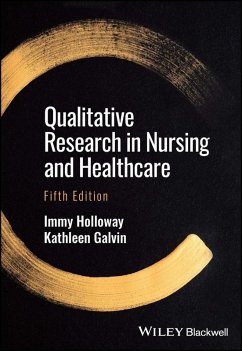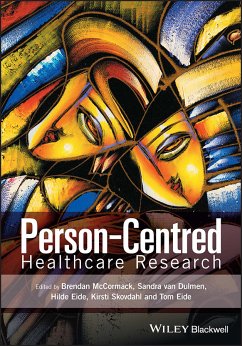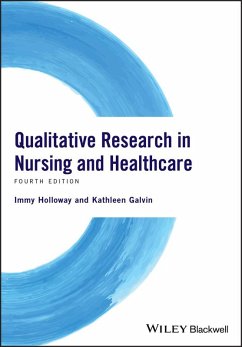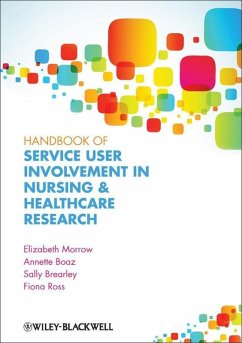
Research Coproduction in Healthcare (eBook, ePUB)
Versandkostenfrei!
Sofort per Download lieferbar
50,99 €
inkl. MwSt.
Weitere Ausgaben:

PAYBACK Punkte
0 °P sammeln!
A ground-breaking and rigorous presentation of coproduction in research In Research Coproduction in Healthcare, a team of experienced applied health researchers and decision makers deliver a robust exploration of collaborative ways on how to plan and conduct healthcare research. The book explores relational skills that are essential to achieving successful coproduction, including trust through humility, ongoing communication, emotional intelligence, and the structures and processes required to work with a range of knowledge users. It also sets out the fundamentals of research coproduction and ...
A ground-breaking and rigorous presentation of coproduction in research In Research Coproduction in Healthcare, a team of experienced applied health researchers and decision makers deliver a robust exploration of collaborative ways on how to plan and conduct healthcare research. The book explores relational skills that are essential to achieving successful coproduction, including trust through humility, ongoing communication, emotional intelligence, and the structures and processes required to work with a range of knowledge users. It also sets out the fundamentals of research coproduction and its transformative potential for more effective and efficient health systems and improved health outcomes. Readers will also find: * A thorough introduction to the planning, implementation and evaluation of research coproduction, including how to write a successful research coproduction proposal * Comprehensive explorations of capacity-building and infrastructure requirements * Practical discussions of the theory of coproduction, including treatments of power and tokenism * In-depth reflections on the essential building blocks of research coproduction Perfect for researchers, knowledge users, funders, trainees and organizations, Research Coproduction in Healthcare will also earn a place in the libraries of coproduction teams, policymakers, clinicians, and health system managers.
Dieser Download kann aus rechtlichen Gründen nur mit Rechnungsadresse in A, B, BG, CY, CZ, D, DK, EW, E, FIN, F, GR, HR, H, IRL, I, LT, L, LR, M, NL, PL, P, R, S, SLO, SK ausgeliefert werden.













